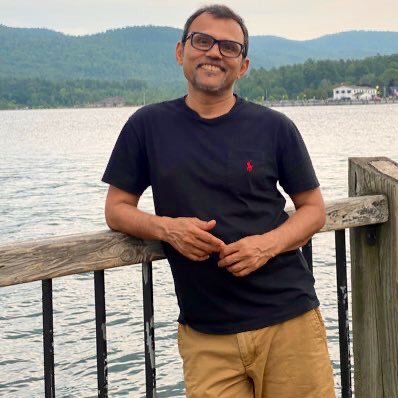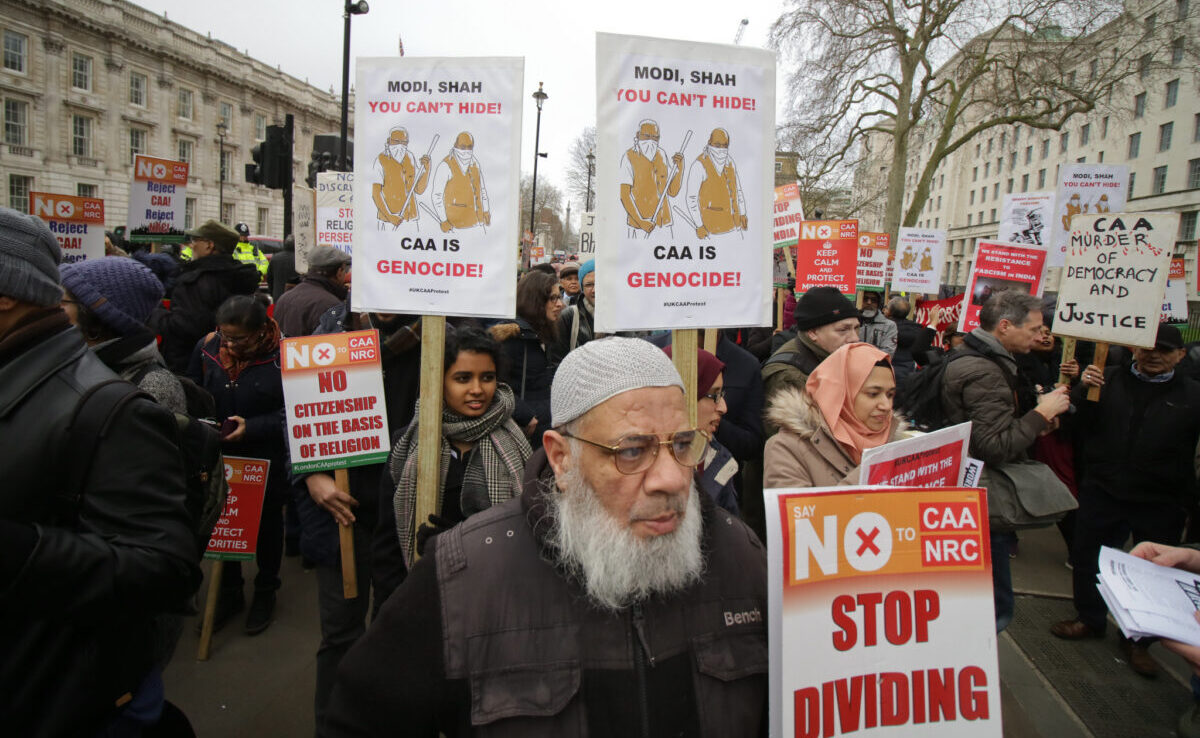Ahead of its elections which begin in April, India announced this week that it is implementing the Citizenship Amendment Act, which threatens to expunge millions of Muslims from the country.
The CAA, along with the National Registry of Citizens act was signed into law in 2019. The CAA allows undocumented minorities — who arrived in India before 2015 and were persecuted in their home countries of Afghanistan, Pakistan, or Bangladesh — to get a fast track to gaining citizenship in India. The law identifies Hindus, Sikhs, Buddhists, Jains, Parsis or Christians as eligible. But it specifically excludes Muslims, including Rohingyas, Ahmaddis, and Shias, who have faced persecuted in their home countries.
‘Divisive and Draconian’
This is the first time in India’s history that religion will be used as a basis for determining citizenship. The Hindu-centric BJP administration, led by Prime Minister Narendra Modi, promoted both the CAA and the NRC. The latter requires proof of Indian identity from every resident.
Many Indians within the country and throughout the global diaspora have protested the CAA and NRC. The Seattle, Washington City Council — led by council member Kshama Sawant — unanimously passed a resolution in 2020 denouncing the CAA as “divisive and draconian.”
“By approving this resolution, the city council will go on the record opposing religious persecution and Islamophobia, the discrimination, scapegoating and oppression of Muslims, poor people and marginalized communities by the Hindu fundamentalist regime of the Bharatiya Janata Party or the BJP and Prime Minister Narendra Modi,” said Sawant at the time.
Opposition Party Objects
Rep. Ro Khanna, D-California, told this reporter in 2019: “Any legislation in a liberal democracy should be neutral on issues of race and religion.”
Jairam Ramesh, leader of the opposition Congress party, told reporters in India March 13 that granting citizenship on the basis of religion is illegal. He questioned why the Modi administration had held onto the law for so long, before deciding to implement it just before elections.
The governments of Tamil Nadu and West Bengal say they will not implement the CAA or the NRC, and have dismissed the roll-out as a divisive, political gimmick.
Detention Camps

In a March 14 interview with Ethnic Media Services, Dr. Sangay Mishra, assistant professor of political science at Drew University in Madison, New Jersey, explained the CAA and the NRC and their ramifications. Mishra is also the author of the book: “Desis Divided: The Political Lives of South Asian Americans.”
“Muslims fear that they will be rendered stateless as a result of the CAA and the NRC being implemented at the same time,” said Mishra. He noted that when the NRC was tested out in the Indian state of Assam, more than 1 million people could not prove their Indian identity. Thousands were placed in detention camps.
EMS: Please explain the implications of the CAA for Muslims.
Mishra: This provision is an attempt to create a religion test for citizenship. So if you are from a certain religion, you’ll be allowed to seek asylum in India and get legal status. But if you are Muslim, you will not be allowed to do that. It’s a very deliberate attempt to mark out Muslims.
Muslims are also persecuted. Think about Ahmadiyyas in Pakistan, and Shias in many parts of Pakistan and Bangladesh.
Rohingyas could also be persecuted. There’s large number of Rohingyas in Bangladesh, who come from Burma. But the government has decided that those who are persecuted and also Muslim will have no protection under this law.
EMS: And the Indian government plans to simultaneously implement the NRC, which requires proof of Indian identity from all residents.
Mishra: Yes. And if you’re not able to prove that, then you would be considered illegal or undocumented.
Many people can’t keep documents in India. People in rural areas, people in flood-prone areas, they don’t have ways to keep documentation. You have a large number of people who have not gone to schools. So how would they have documentation?
And so to expect that everyone would be able to provide documentation is completely unreasonable. It is not based in the the reality of how society is structured.
EMS: Will Muslim residents of India who cannot prove their Indian identity be deported?
Mishra: We have not seen deportation yet. It is tricky, because another country has to accept the deportee. But detention camps are there.
The more dangerous part is that you are rendered without any rights because rights are linked to citizenship. And there are all kinds of ramifications connected with that. The inability to buy land, doing business, holding a a job.
So you’re kind of a stateless person in limbo. And that is a very, very dangerous situation to be in. You are vulnerable of all kinds of exploitation.
EMS: So what does this suggest about a country that was founded on the principles of secularism?
Mishra: India is moving in a direction where Hindu supremacy is given preference in law. Muslims are seen as suspicious and not welcome.
And so definitely, it is a move away from secularism. It’s a move away from the idea that this nation belongs to all religions.
The CAA is one of the most dramatic ways of showing that even our laws are going to give preference to Hindus. And it’s going to exclude Muslims.





